Maximize your investment opportunities
Whether you’re a seasoned trader or just getting started in the world of crypto, my platform offers everything you need to make informed decisions and maximize your investment opportunities.
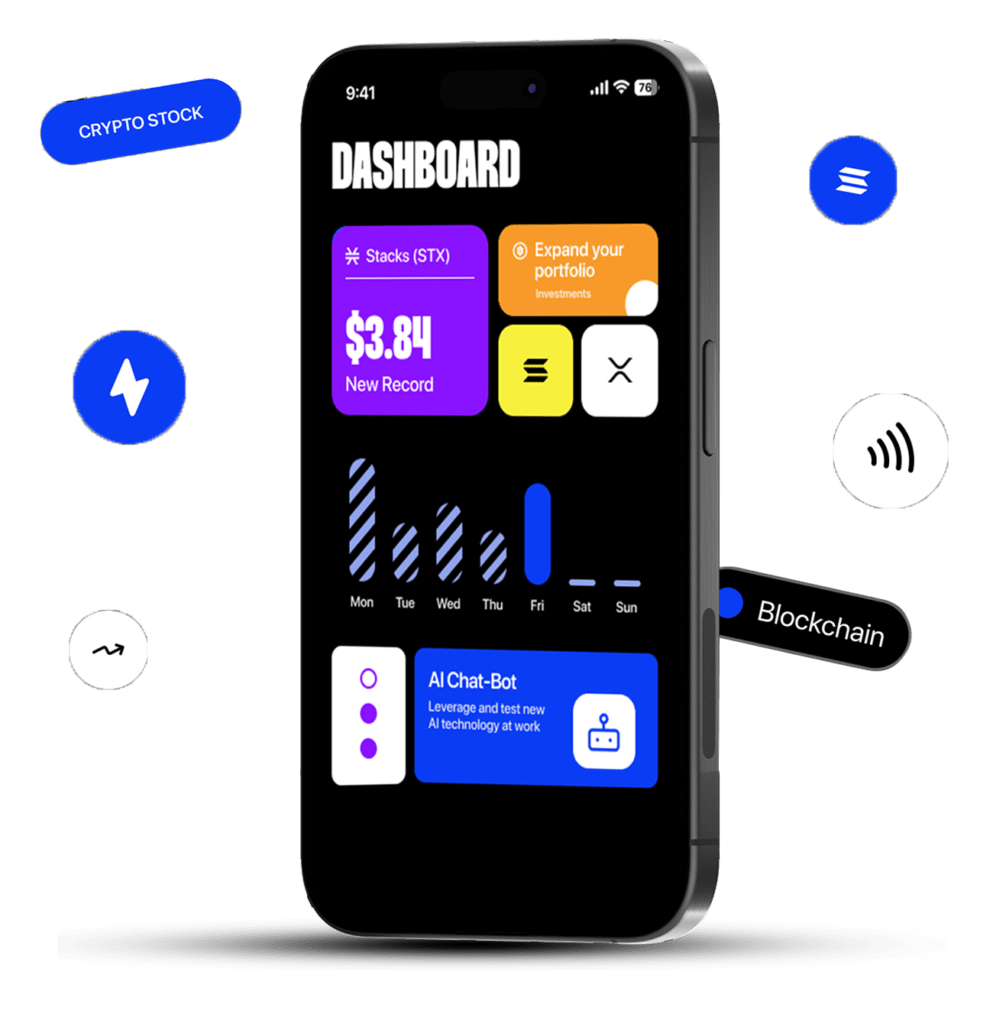
How Crypto Trading Platform works?
A Crypto Trading Platform works through a series of steps that enable users to buy, sell, and trade cryptocurrencies. Here’s a simplified overview of how it works:
A crypto trading platform facilitates the buying, selling, and trading of cryptocurrencies. Users register, deposit funds (either fiat or crypto), and can then place buy or sell orders on the platform. Transactions are executed based on market prices and users can track their portfolio and manage trades through the platform’s interface.
Registration and Account Creation
Users start by registering on the platform and creating an account. They provide necessary details such as email, password, and sometimes KYC (Know Your Customer) information for identity verification.
Exploring Market
Users can then explore the market to view various cryptocurrencies available for trading. They can analyze charts, check prices, and review historical data to make informed trading decisions.
Deposit Funds
Once the account is created and verified, users can deposit funds into their account. They can typically deposit fiat currency (like USD, EUR) or other cryptocurrencies supported by the platform.
Placing Orders
To buy or sell cryptocurrencies, users place orders on the platform. There are different types of orders, including market orders (buying or selling at the current market price) and limit orders (setting a specific price to execute the trade).
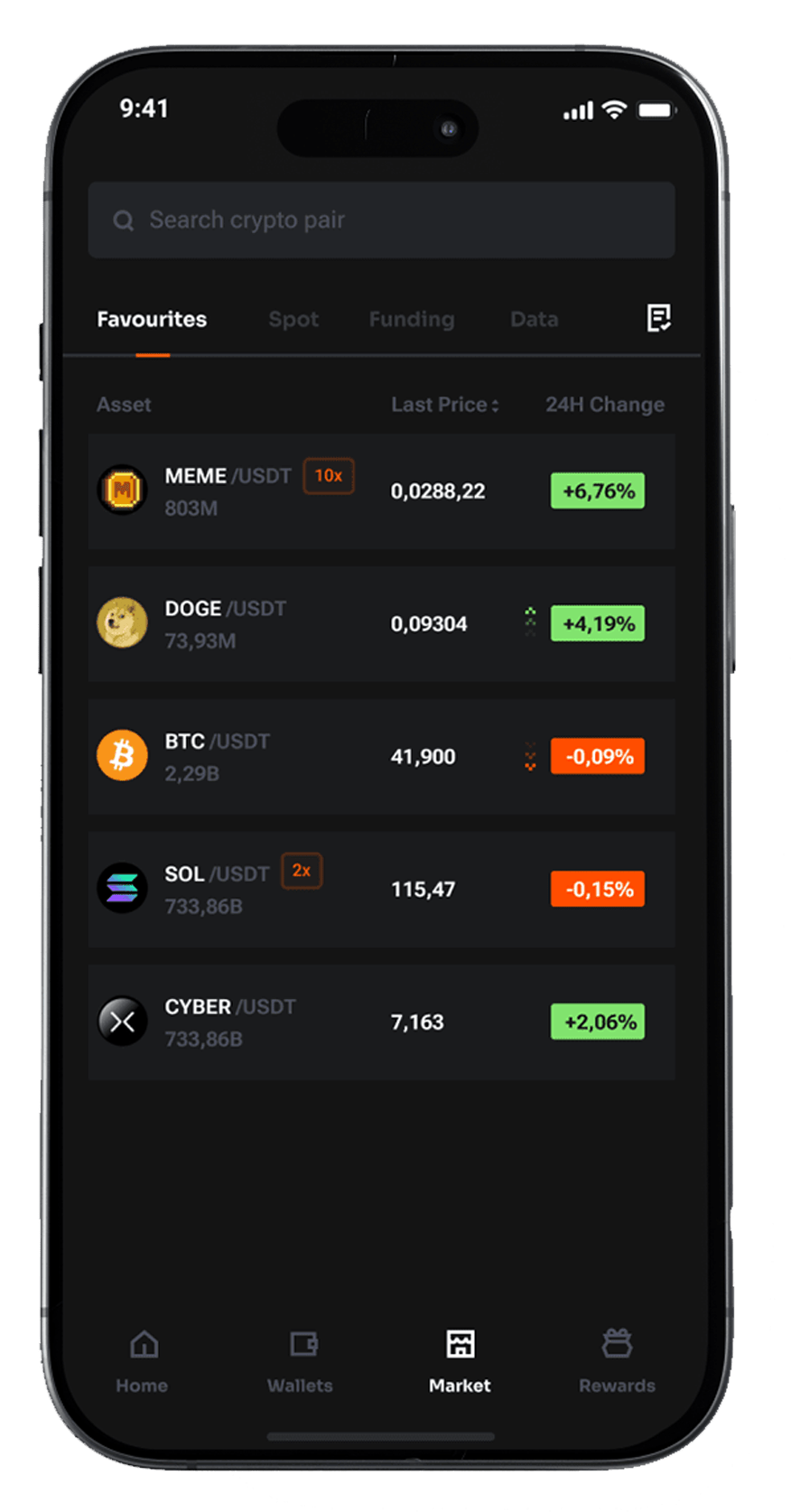
Launch Your Crypto Platform Today
Partner with me to develop a robust, user-friendly platform that allows your customers to buy, sell, and trade cryptocurrencies seamlessly.
The apps that offer a similar business model are
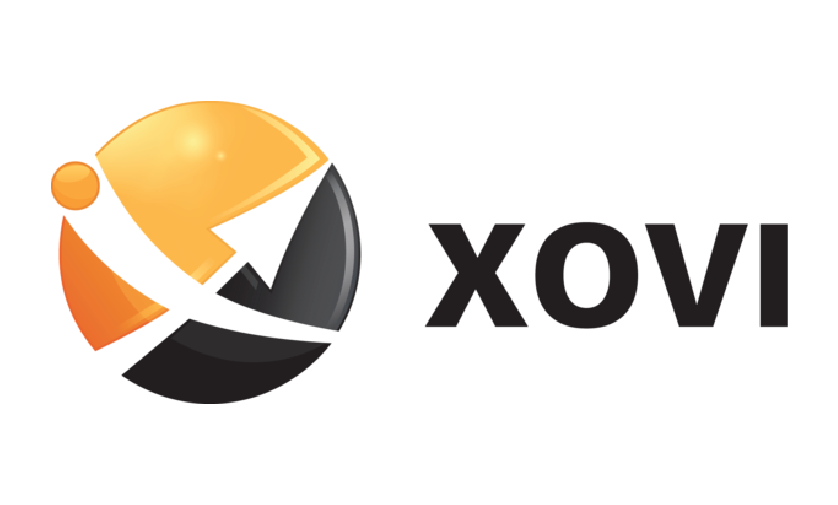
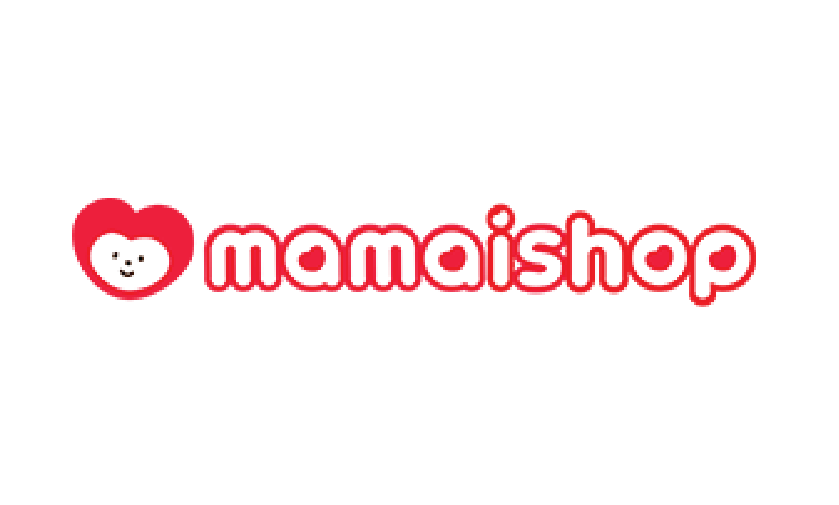



Embark on the journey of crypto trading platform development to offer users a seamless experience in buying, selling, and trading digital assets. Harness the potential of the crypto market and provide users with secure transactions, real-time data, and advanced trading tools, fostering financial inclusion and innovation.

Empower Your Crypto Journey: Seamlessly Trade, Securely Transact
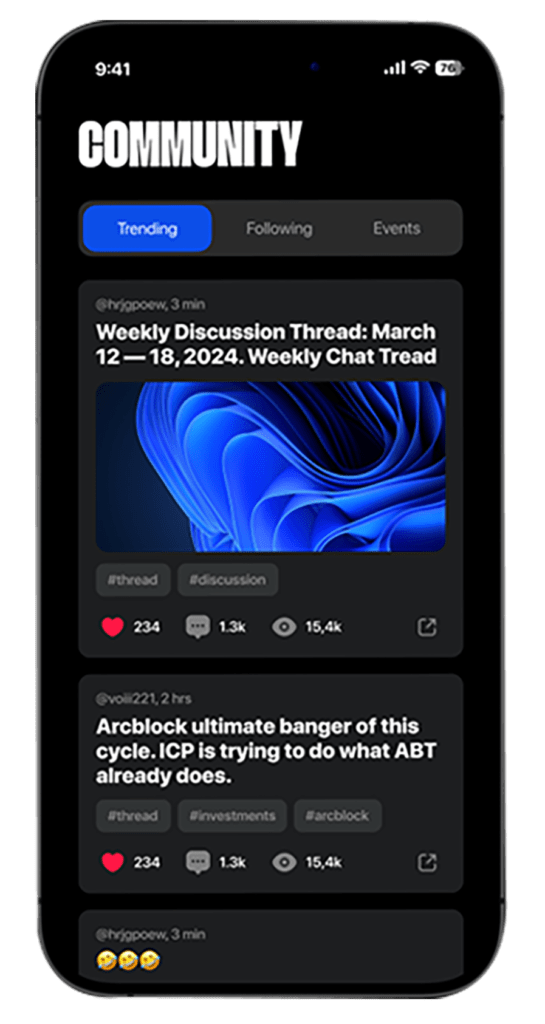
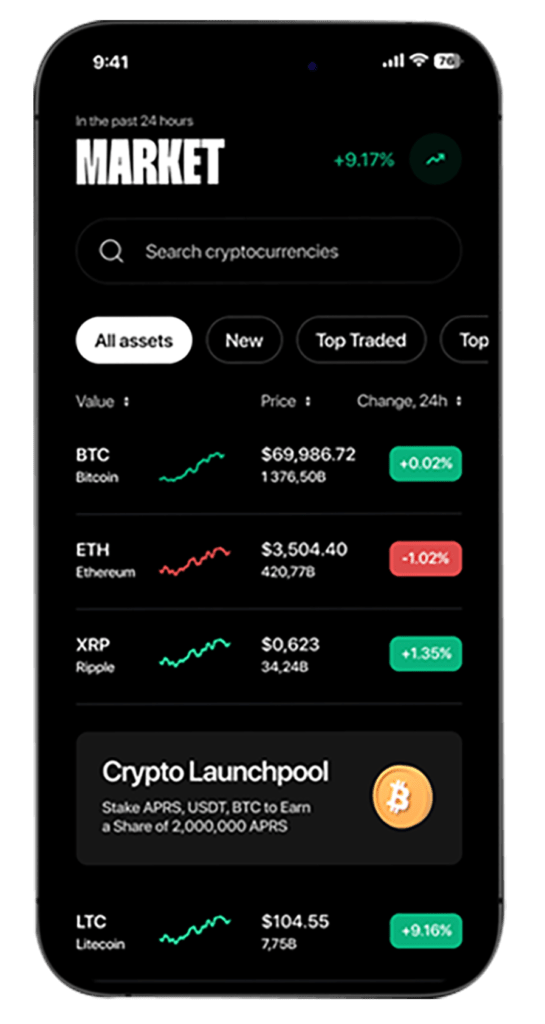
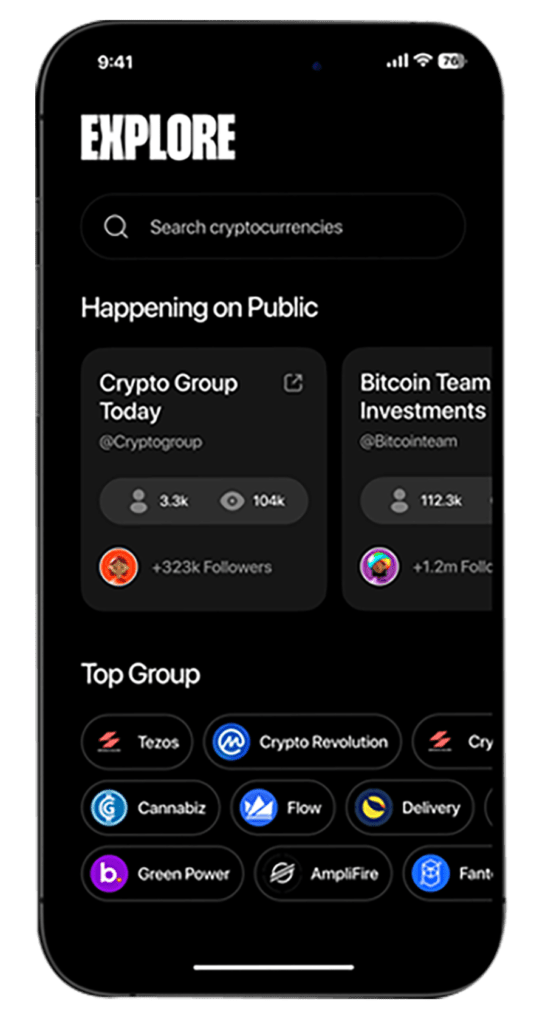
Start Developing Your Custom Crypto Solution
User features
Engage in hassle-free trading with intuitive interfaces and real-time market updates. Access a diverse range of cryptocurrencies, manage portfolios, and execute trades with ease.
Account Creation
Users can easily create an account on the platform, providing necessary details for registration.
Portfolio Management
Users can manage their cryptocurrency holdings, view balances, track transaction history, and monitor portfolio performance.
Trading Dashboard
Access to a user-friendly dashboard with real-time market data, price charts, and trading tools for making informed trading decisions.
Order Placement
Users can place various types of orders, including market orders, limit orders, and stop orders, to buy or sell cryptocurrencies.
Multiple Trading Pairs
Access to a wide range of trading pairs, allowing users to trade cryptocurrencies against fiat currencies (e.g., BTC/USD) or other cryptocurrencies (e.g., ETH/BTC).
Wallet Integration
Integration with digital wallets for storing and managing cryptocurrencies securely.
Security
QR Pay systems often employ encryption and secure authentication methods to protect user data and prevent fraud. Additionally, some QR Pay apps require PINs, biometrics, or passwords for authorization, enhancing the security of transactions.
Merchant Offers and Discounts
Users may be able to pay bills for utilities, services, or subscriptions through the QR Pay app, streamlining the payment process for recurring expenses.
International Payments
Depending on the app and its capabilities, QR Pay might allow users to make cross-border payments, making it a convenient option for travelers or international transactions.
Enjoy enhanced security measures, robust customer support, and seamless transactions.
User Flow
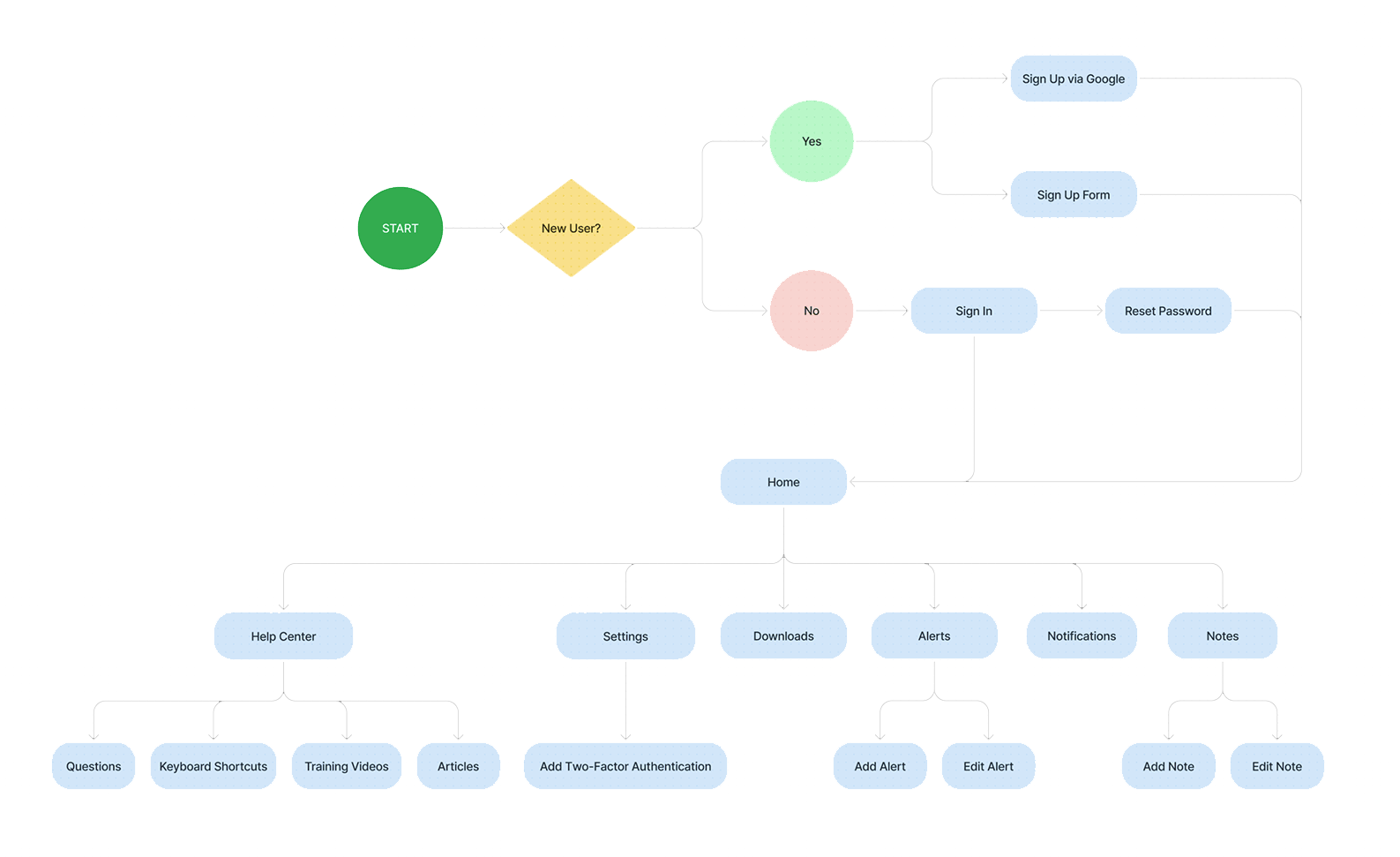
Merchant features
Expand your business reach and accept cryptocurrencies as payment with seamless integration. Access comprehensive analytics, customizable payment options, and secure transaction processing.
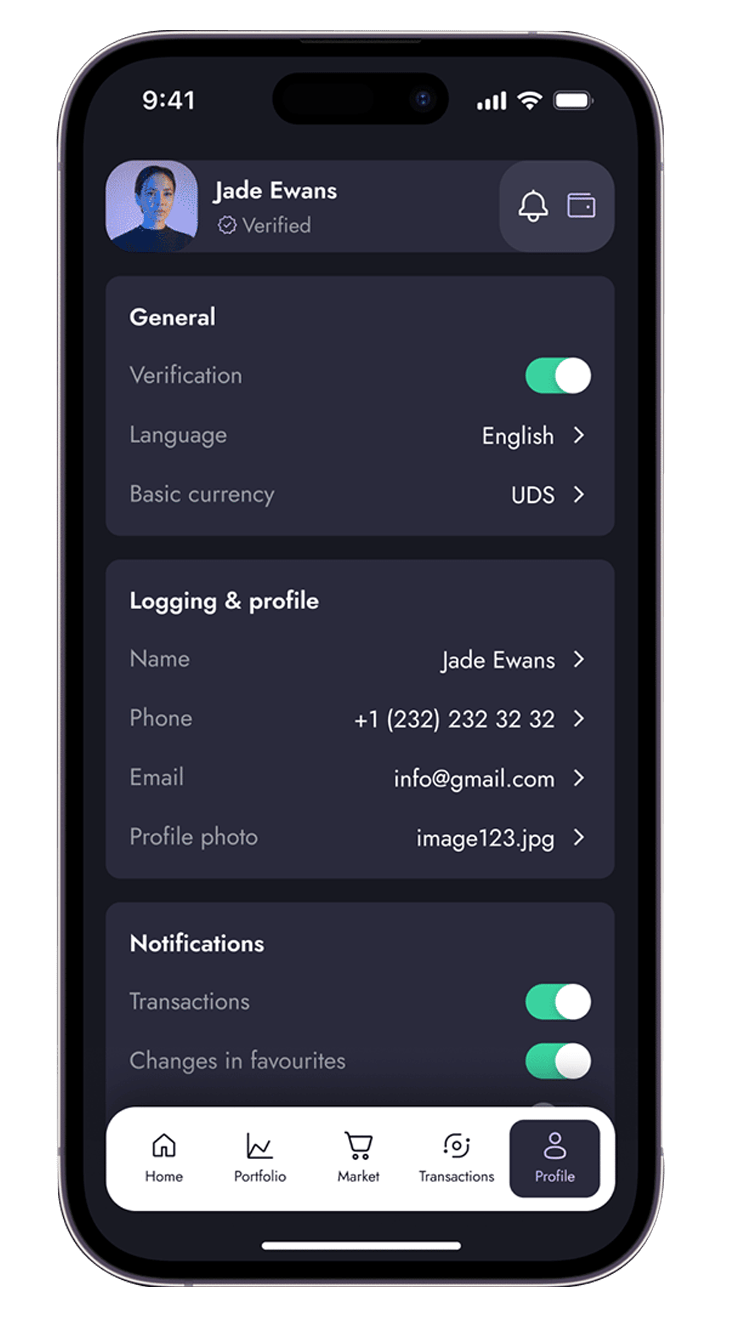
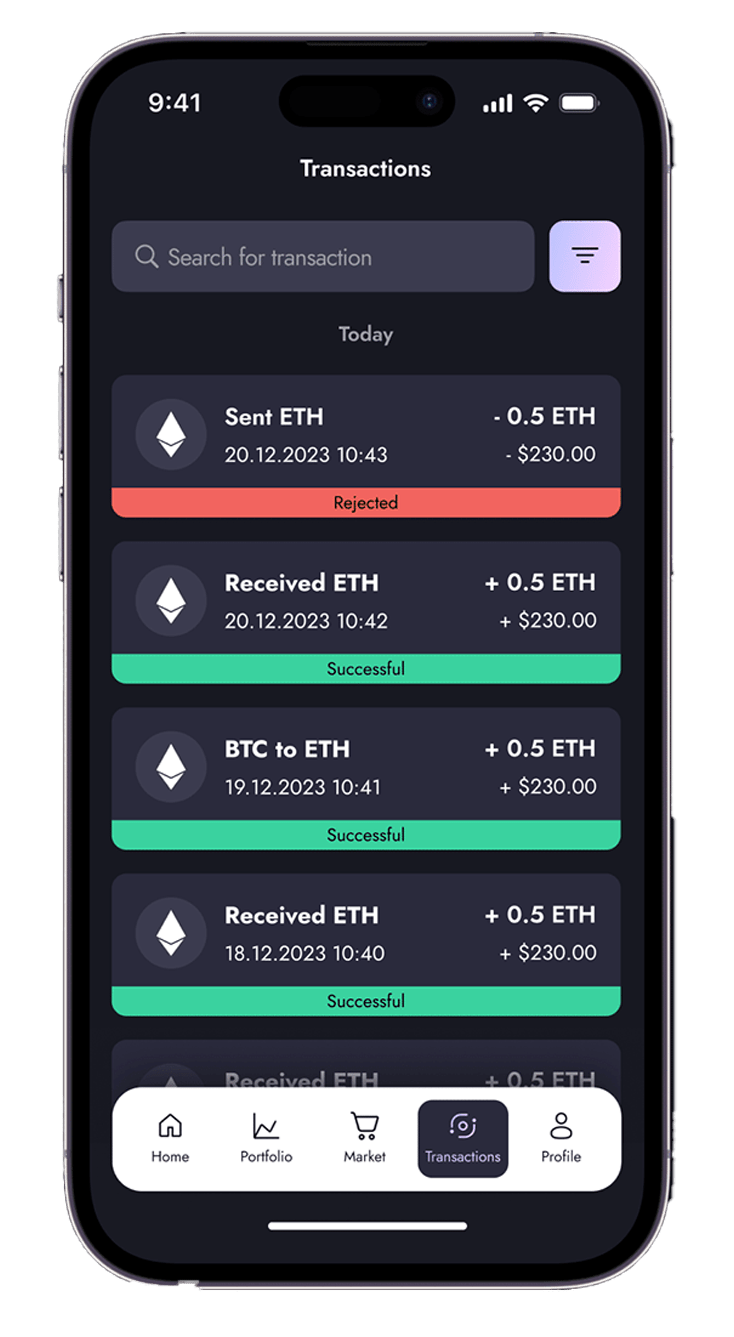
Listing Services
Merchants can list their cryptocurrencies for trading on the platform, gaining visibility and access to a broader user base.
Trading Tools
Access to advanced trading tools and features designed specifically for merchants, including order management, risk management, and automated trading strategies.
Market Making Services
Merchants can provide liquidity to the platform by acting as market makers, facilitating trades and maintaining order book depth.
API Integration
Integration with the platform's API for seamless connectivity and access to trading data, enabling merchants to build custom trading applications and algorithms.
ecurity Measures
Robust security measures to protect merchants' accounts and funds, including two-factor authentication (2FA), encryption, and cold storage solutions.
Reporting and Analytics
Access to comprehensive reporting and analytics tools for monitoring trading performance, analyzing market trends, and optimizing trading strategies.
Integration with POS Systems
Many QR Pay services can integrate with existing Point-of-Sale (POS) systems, allowing merchants to seamlessly incorporate QR payments into their current payment processing infrastructure.
Customizable QR Codes
Merchants can often customize their QR codes, adding logos or branding elements to make them more visually appealing and recognizable to customers.
Seamless Refunds and Disputes
In case of any disputes or the need for refunds, QR Pay apps typically offer a smooth process for merchants to handle these situations.
Promotions and Loyalty Programs
Some QR Pay systems allow merchants to set up promotions, discounts, or loyalty programs to incentivize customer engagement and repeat business.
International Acceptance
Depending on the QR Pay service, merchants may be able to accept payments from customers internationally, expanding their customer base and potential sales.
Enhance customer satisfaction with efficient order management and automated invoicing.
Super Admin Panel
Gain full control and oversight of platform operations with comprehensive admin dashboards. Manage user accounts, monitor transactions, and implement security protocols with ease.
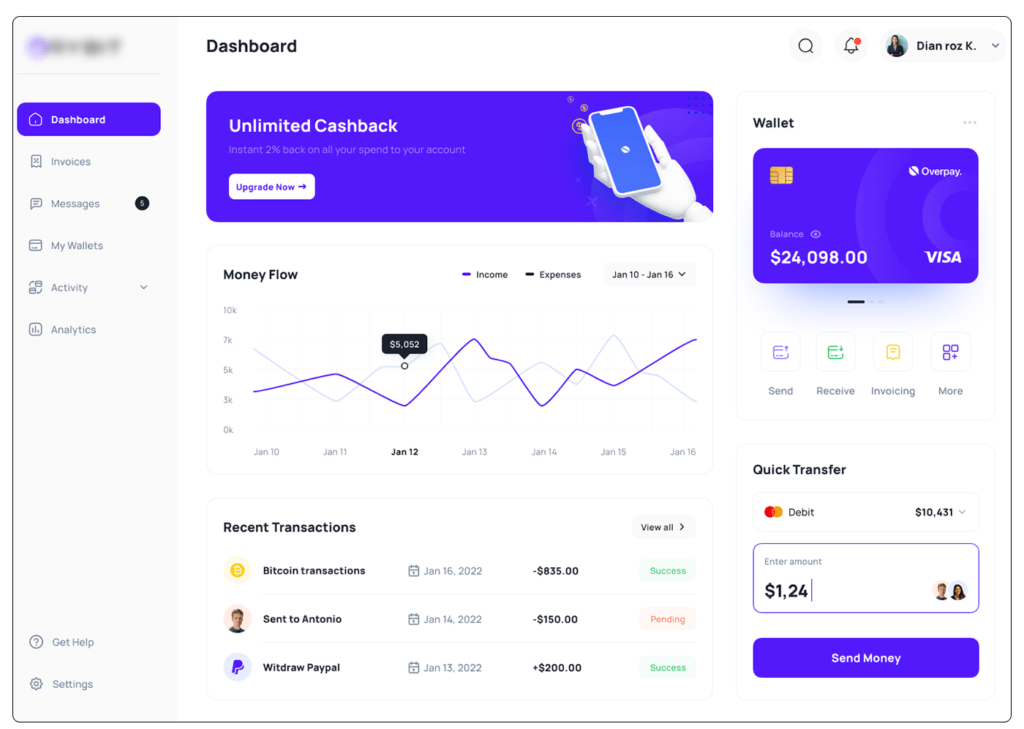
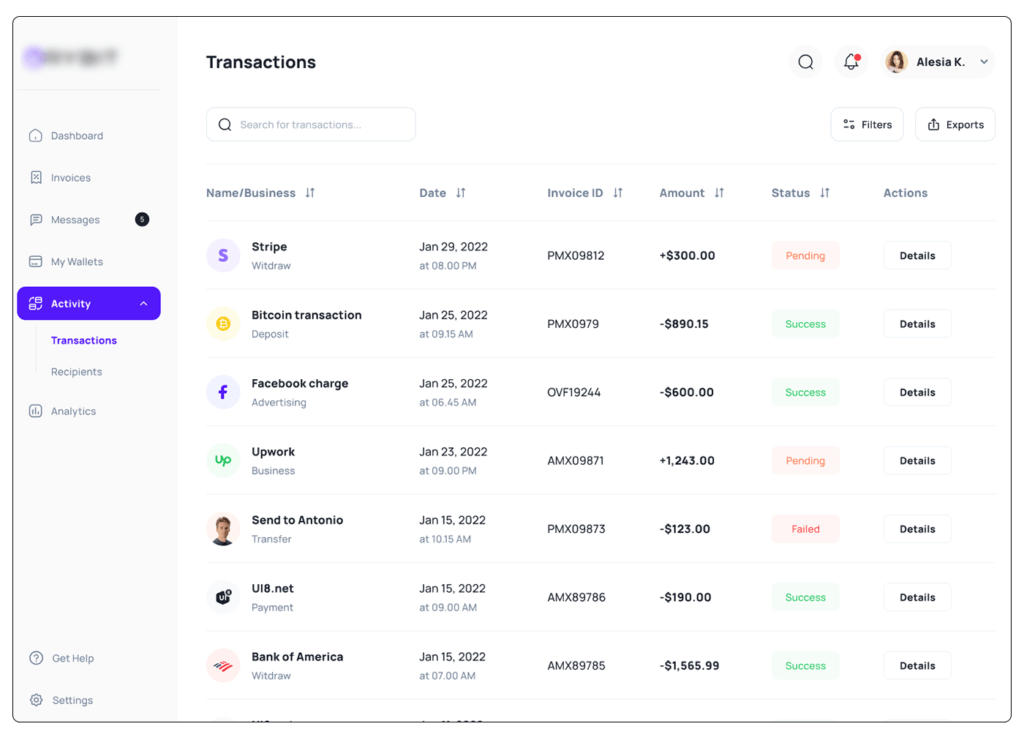
User Management
Ability to manage user accounts, including account creation, modification, and suspension.
Security Settings
Access to security settings to configure authentication methods, password policies, and other security measures.
Compliance Management
Monitoring and enforcement of regulatory compliance requirements, including KYC (Know Your Customer) and AML (Anti-Money Laundering) procedures.
Security and Fraud Management
Super administrators can execute and change safety efforts to forestall false exercises and safeguard delicate client information.
Market Surveillance
Monitoring and surveillance of trading activities to detect and prevent fraudulent or suspicious behavior.
Liquidity Management
Management of liquidity pools and order book depth to ensure smooth trading operations and minimize market volatility.
System Settings and Customization
The panel typically provides options for customizing the appearance, branding, and settings of the payment platform to align with the company's identity.
API Management
If the payment system offers APIs for integration with other services, the Super Admin Panel may include API management features, allowing super admins to monitor API usage and manage access.
Support and Customer Service
Super admins may have access to customer support tools and features to address any issues or inquiries related to the payment platform.
Notifications and Alerts
The panel can be equipped with features to set up notifications and alerts for critical events, such as high-value transactions or system issues.
Backup and Recovery
Super admins might have the ability to perform backups of the payment system's data and configure disaster recovery procedures.
Merchant Management
Super admins can manage merchant accounts, review applications, approve or reject new merchants, and monitor the performance of existing merchants.
It’s essential to take note of that the elements recorded above are general models and may not cover all potential functionalities accessible in a Super Administrator Board for an installment framework. Normal installment doors incorporate Stripe, PayPal, Braintree, and others.
Information Architecture

Tech stack used
The tech stack used to develop a crypto trading platform typically includes a combination of programming languages, frameworks, libraries, and tools tailored to meet the specific requirements of the platform. Here’s a common tech stack for building a robust crypto trading platform:
Backend
Python, Node.js, Java, or Go for server-side development.
Frontend
JavaScript (with frameworks like React.js, Angular, or Vue.js) for client-side development.
Database
MongoDB or Cassandra for handling large volumes of data and scalability.
Blockchain Integration
Blockchain Protocol: Ethereum, Hyperledger Fabric, or Stellar for implementing blockchain-based transactions.
Smart Contracts: Solidity for Ethereum-based smart contracts.
APIs and Middleware
RESTful APIs: Express.js or Flask for building APIs to interact with the backend services.
WebSockets: Socket.io for real-time communication between the server and clients.
Authentication and Authorization
OAuth 2.0: Used for user authentication and authorization. JSON Web Tokens (JWT): For securely transmitting information between parties.
Security and Encryption
To ensure secure transactions, QR Pay systems employ encryption algorithms and security protocols. Technologies like SSL/TLS certificates and OAuth might be used to secure communications between the app and the backend servers.
Mobile Wallet Integration
QR Pay apps often integrate with mobile wallet services to enable users to link their bank accounts or credit/debit cards. This integration may involve SDKs provided by mobile wallet providers.
Cloud Services
Many QR Pay systems utilize cloud services like Amazon Web Services (AWS), Microsoft Azure, or Google Cloud Platform for hosting their backend infrastructure, ensuring scalability and reliability.
Analytics and Reporting
For tracking user behavior and transaction analytics, QR Pay systems might integrate with analytics tools like Google Analytics or custom analytics solutions.
Push Notifications
QR Pay apps often send push notifications to users. For this, services like Firebase Cloud Messaging (FCM) or Apple Push Notification Service (APNS) might be used.
Google Analytics
Firebase Cloud Messaging
The specific features and capabilities can vary based on the complexity and scope of the payment platform or service being managed
Unlock the future of digital finance

Ready to innovate and lead in the crypto space?
Support Facility
Support facilities offered for a crypto trading platform are crucial for ensuring smooth operations, resolving user issues, and maintaining customer satisfaction. Here are some key support facilities commonly offered:
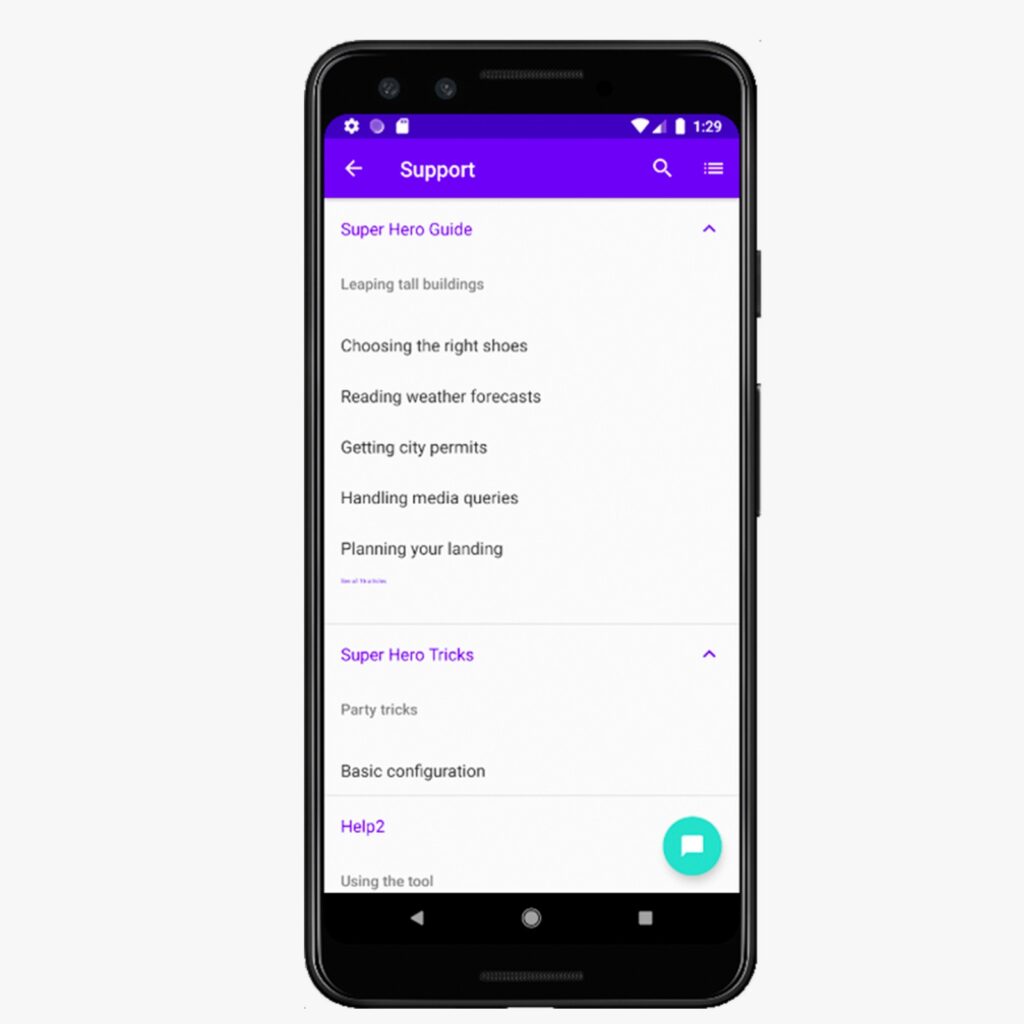
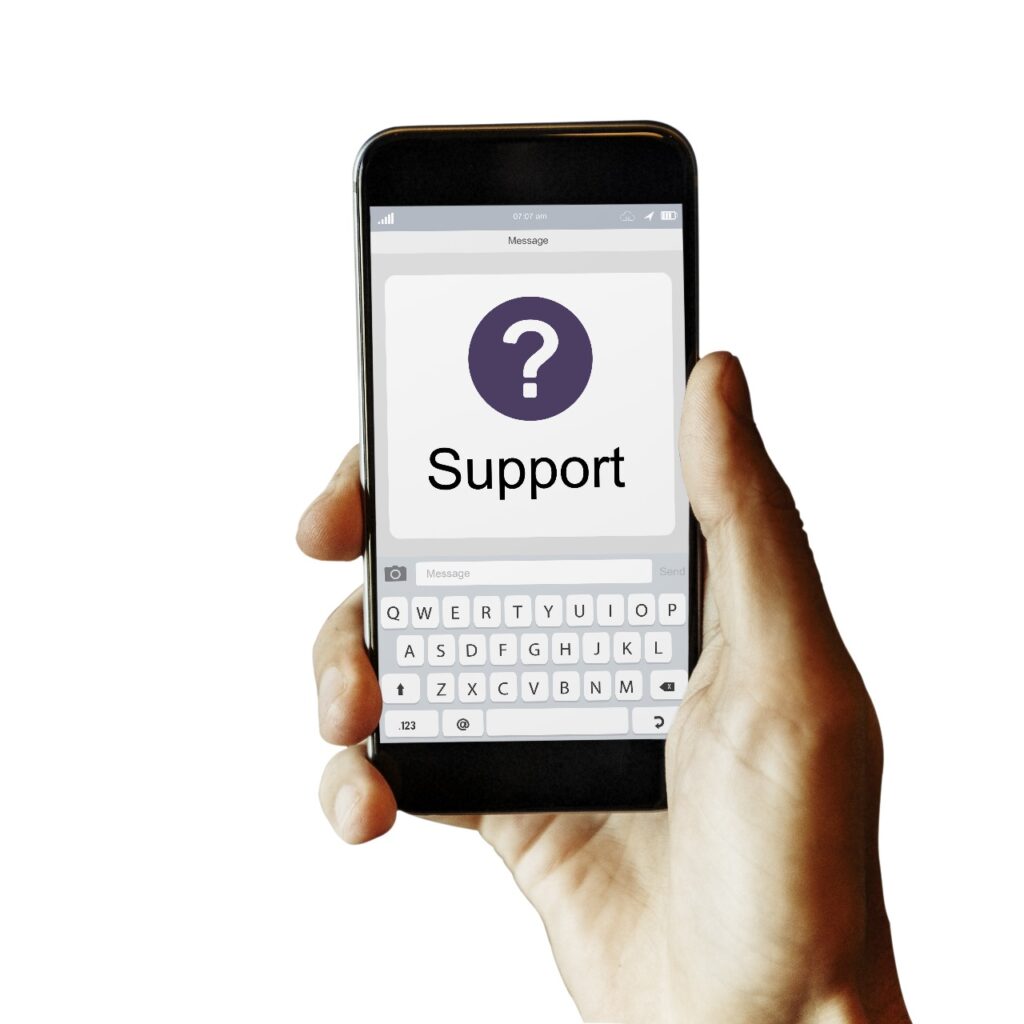
24/7 Customer Support
Provide round-the-clock customer support via multiple channels such as live chat, email, and phone to address user queries and issues promptly.
Dedicated Helpdesk
Offer a dedicated helpdesk or ticketing system where users can submit support tickets and track the status of their inquiries.
Knowledge Base
Create a comprehensive knowledge base or FAQ section that covers common questions, troubleshooting steps, and platform functionalities to empower users with self-service support options.
Educational Resources
Provide educational resources such as tutorials, webinars, and guides to help users understand how to use the platform effectively, navigate the crypto market, and mitigate risks.
Community Forums
Establish community forums or discussion boards where users can interact with each other, share insights, and seek advice from fellow traders.
Account Managers
Assign dedicated account managers to high-volume traders or institutional clients to provide personalized support, address specific needs, and foster long-term relationships.
Overall, a strong support facility is essential for building trust with users and merchants, enhancing the overall user experience, and resolving any issues promptly, ensuring smooth and reliable payment transactions.
Get started with best crypto trading platform development
Collaborate with me to create a customized crypto trading platform tailored to your unique business needs and goals.
Your Gateway to the Future of Finance.
Crypto trading platforms serve as online marketplaces where users can buy, sell, and trade various cryptocurrencies. These platforms offer a range of services and features to facilitate cryptocurrency transactions, investment, and trading activities. Some common services provided by crypto trading platforms include:
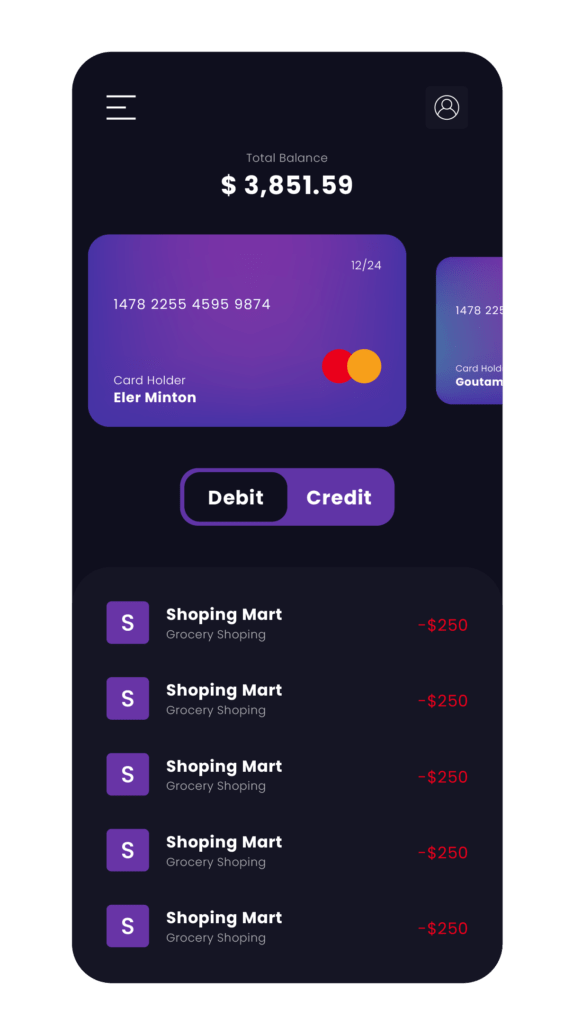
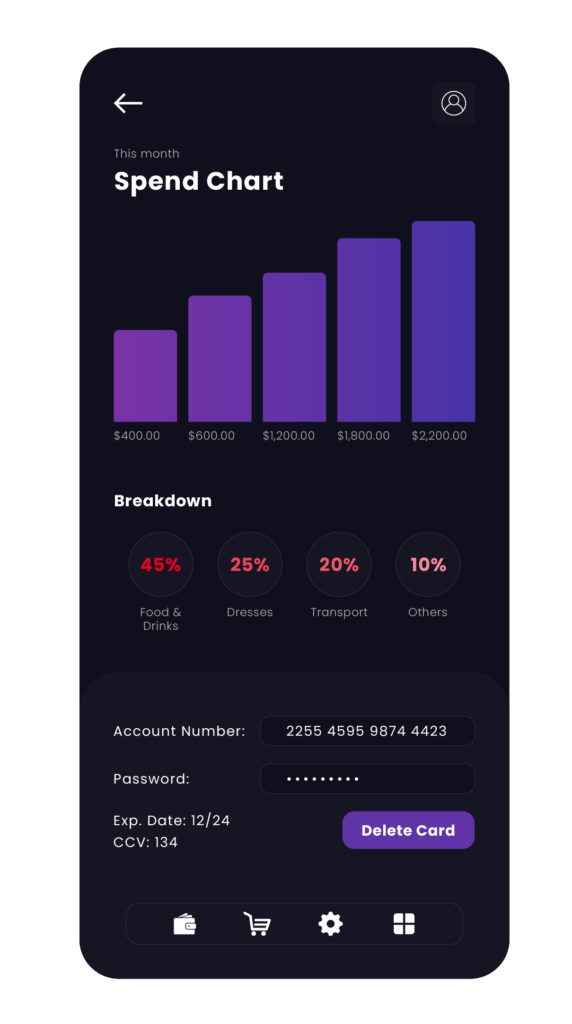
Cryptocurrency Exchange
Facilitate the exchange of one cryptocurrency for another or for fiat currency (e.g., USD, EUR).
Wallet Services
Provide secure digital wallets for storing cryptocurrencies, including hot wallets for frequent trading and cold storage for long-term holding.
Trading Tools
Offer advanced trading tools and features such as limit orders, stop-loss orders, margin trading, and chart analysis to help users execute trades effectively.
Market Data and Analytics
Provide real-time market data, price charts, trading volume, and other analytics to help users make informed trading decisions.
Why Choose me?
Choosing expert like me to develop a crypto trading platform is essential for several reasons:
Expertise in Cryptocurrency
As an Experienced developer I have in-depth knowledge of blockchain technology, cryptocurrencies, and the intricacies of crypto trading platforms.
Security Concerns
Cryptocurrency trading platforms deal with sensitive user data and assets. I am e well-versed in implementing robust security measures, encryption techniques, and authentication protocols to safeguard user funds and data from cyber threats and attacks.
Compliance Requirements
I am familiar with relevant regulations, such as KYC (Know Your Customer) and AML (Anti-Money Laundering) laws, and can ensure that the platform adheres to legal requirements and industry standards.
Ready to revolutionize the crypto market?
Take your cryptocurrency platform to the next level with our cutting-edge development solutions.
Frequently asked questions
A Crypto Buy Sell and Trading platform is an online marketplace where users can buy, sell, and trade cryptocurrencies such as Bitcoin, Ethereum, and others. It allows users to exchange digital assets with other users or against fiat currencies like USD or EUR.
Users can sign up for an account on the platform, deposit funds, and start buying or selling cryptocurrencies through the platform's interface. Trades are executed on the platform's order book, matching buyers with sellers based on their desired price and quantity.
Security measures such as encryption, two-factor authentication (2FA), and cold storage for funds are typically employed by reputable platforms to safeguard users' assets. However, users should exercise caution and conduct thorough research before using any platform.
The range of cryptocurrencies available for trading varies by platform but typically includes popular options like Bitcoin (BTC), Ethereum (ETH), Litecoin (LTC), Ripple (XRP), and many others.
Yes, most platforms charge fees for trades, deposits, and withdrawals. These fees can vary based on factors such as transaction volume, currency pairs traded, and the platform's fee structure.
Users can typically deposit funds into their accounts using various payment methods such as bank transfers, credit/debit cards, or other cryptocurrencies. Each platform may support different deposit options.
Yes, many platforms allow users to trade cryptocurrencies against fiat currencies like USD, EUR, or GBP. This enables users to buy and sell cryptocurrencies using traditional currencies.
Features may include real-time market data, charting tools, order types (e.g., market orders, limit orders), portfolio management tools, and customizable trading interfaces.
Yes, most platforms require users to undergo a verification process to comply with Know Your Customer (KYC) and Anti-Money Laundering (AML) regulations. This typically involves providing identification documents and verifying personal information.
Factors to consider include security measures, supported cryptocurrencies, trading fees, liquidity, user interface, customer support, and regulatory compliance. It's essential to choose a platform that meets your specific needs and preferences.
Get In touch with me today
I’am here to help ! If you have any Questions or would you like to discuss about your mobile app development services then I am here to assist you.
Have a cool Project?
Get in touch
Our Location
Email Address
Let's talk about your project.
I’am here to help with any questions or needs you might have. Reach out to me, and let’s start a conversation about how I can assist you.


